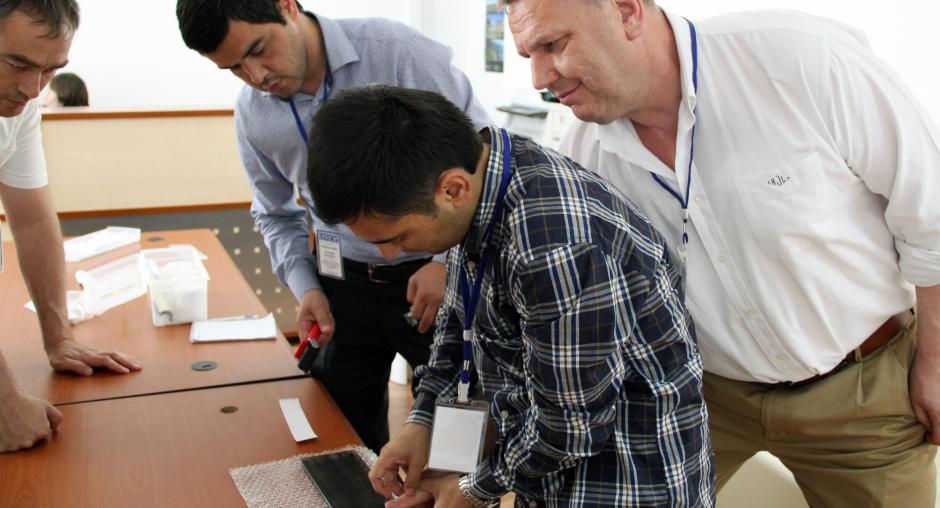OSCE Office in Tajikistan facilitates training on crime scene examination and forensic recovery of evidence

DUSHANBE, 08 May 2015 – A five-day training on Crime Scene Examination and Forensic Recovery of Evidence for the law enforcement agencies concluded today at the OSCE Office in Tajikistan.
The training provided theoretical and practical training sessions on crime scene examination and forensic recovery of evidence focusing on international best practice.
The event brought together some 33 representatives in respect of crime scene management, crime scene examination and forensic evidential recovery from the Ministry of Interior Affairs, General Prosecutor’s Office and State Committee for National Security of Tajikistan from Dushanbe and regions.
Peter Hajnik, Counter Terrorism and Police Issues Adviser at the OSCE Office in Tajikistan, said: “Crime scene investigation is the meeting point of science, logic and law. “Processing a crime scene" is a long, tedious process that involves purposeful documentation of the conditions at the scene and the collection of any physical evidence that could possibly illuminate what happened and point to who did it.”
“This training course is aimed at enhancing theoretical and practical skills of those law enforcement officers who first arrive at the crime scene and will include demonstrations and exercises in the use of current forensic practices,” said the OSCE consultant from UK, Robert Lamburne.
During the training participants were introduced to the essentials of cybercrime and mock scene. Moreover, they had practical experience on taking fingerprints, photography, documenting the crime scene and using the crime scene cases. At the end of the training the OSCE donated 30 crime scene kits and cameras to participants.
